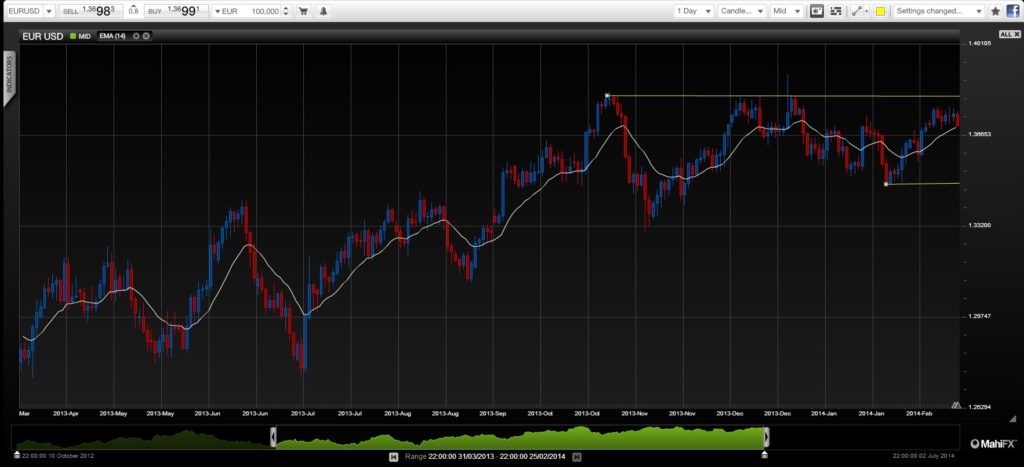The spectre of deflation is making the rounds again and could become a major driver of forex activity and even spark a repeat of currency wars should policy makers decide to fight back with reflation programmes.
Japan lived with consistent mild deflation for years until the government of Prime Minister Shinzo Abe decided that enough was enough. The Bank of Japan let the figurative printing presses rip leading to some mild inflation, currently 1.3%, and big falls in USD/JPY.
The European Central Bank is seen as a likely candidate to pursue aggressive monetary expansion on deflation fears. In a twist on quantitative easing, which it is not allowed to do, it could instead lend money to commercial banks at very cheap rates to buy Eurozone government bonds.
By Justin Pugsley, Markets Analyst MahiFX. Follow MahiFX on twitter @MahiFX
That would drive EUR/USD lower potentially triggering even bigger tensions than the JPY devaluation given the importance of the Eurozone in world trade. It could also trigger a renewed rally in risk currencies, which won’t be welcome in many emerging market countries hoping to export their way out of trouble. The Eurozone’s 2013 current account surplus was a hefty EUR 221.3 billion, up from EUR 128.6 billion the year before.
The ECB does tend to be conservative and quite slow to act. It may decide to wait for several months to see how the Eurozone economy shapes up before acting.
Deflation is one of the last things highly indebted western governments want. It makes the real debt burden heavier and the Eurozone currently looks the most vulnerable to falling prices.
Eurozone inflation is around 0.8% and is only 0.6% in Italy with Greece and Cyprus experiencing deflation of 1.4 and 1.3% respectively. Even the UK has seen the level of price rises dip below 2% for the first time in over four years. Whilst in the US it is about 1.6%.
Eurozone deflation could see ECB take drastic action
Deflation and growth risks could trigger renewed competitive devaluations
With the prospect of economic recovery under way in much of the developed world – it is likely that US and UK central banks will not budge much on their current monetary stances and will tolerate very low inflation.
They’re likely to reason that more economic activity should within six to twelve months see sustained rising real estate prices, wages and more expensive services – and hence more inflation.
Even in the Eurozone, which is vulnerable to deflation, could see prices stabilise if its economy really does recover – at least the troubled periphery countries are showing signs of bottoming out.
Eurozone GDP is forecast by the European Commission to grow by 1.2% this year well behind the US, UK, China and even Japan. However, what really matters as always in the Eurozone is not so much the headline figure, but whether there is convergence or divergence within the region. The latter is a potential signal of brewing problems, which the ECB will be paying attention to.
The wild card is the prospect of the economic recovery losing momentum and unemployment starts nudging up. US Non Farm Payroll numbers have been disappointing recently, though possibly weather related, and could easily slip further if the economy starts to slow.
Should the Federal Reserve decide that it needs to reverse its policy of tapering its bond purchases – unlikely anytime soon – it would lead to a big USD sell-off putting pressure on other countries to pursue competitive devaluations.

